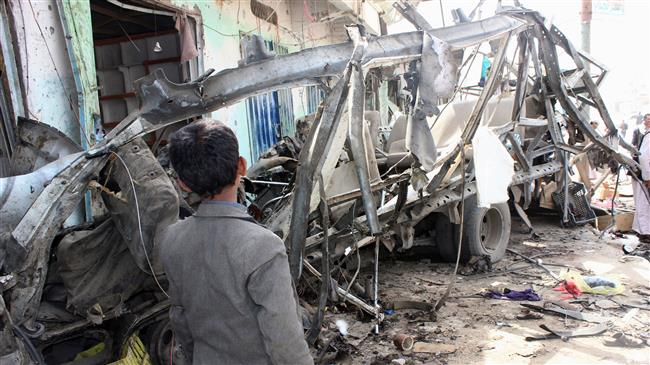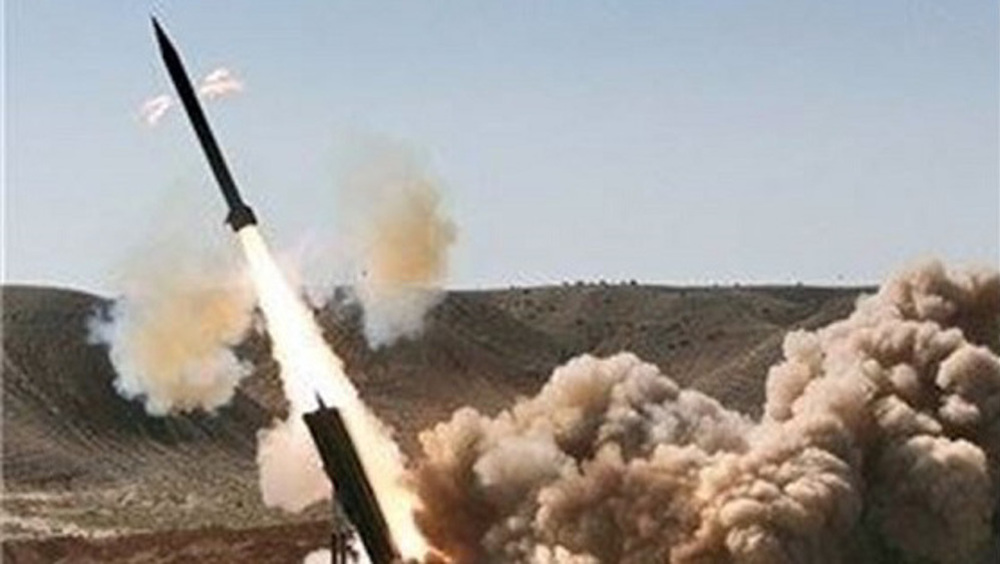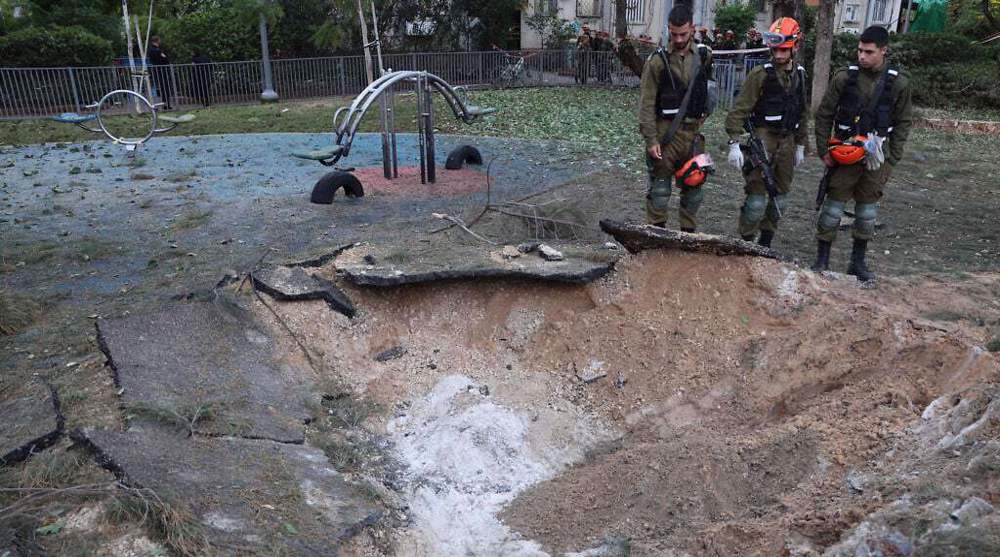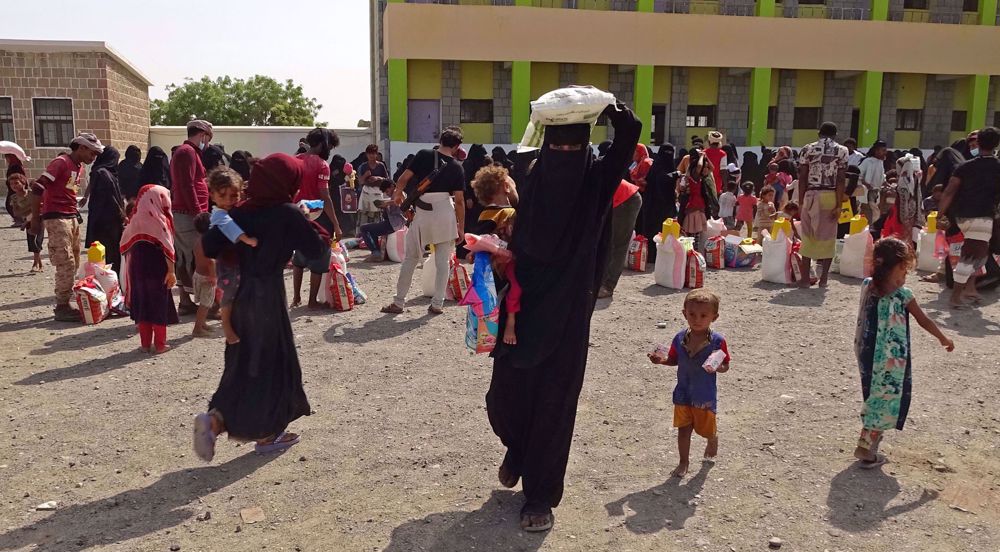Yemeni court sentences to death five people found guilty of spying for Britain’s MI6
A local court in the Yemeni capital has handed down death sentences to five individuals found guilty of spying for the British intelligence service MI6 as well as perpetrating acts of sabotage in the war-ravaged Arab country.
According to Yemeni news agency Saba, the five defendants were given the capital punishment by a high-level bench headed by Justice Mohammad Mofleh on Tuesday, following a trial that lasted several months.
The five convicts include Arafat Qasim Abdullah Al-Hashidi, Ali Mohammad Abdullah Al-Jamani, Ali al-Khwarijah, Salim Abdullah Yahya Habish and leader of the espionage ring, Aman Mujahid.
Another accused in the case, Mohammad Sharaf Ghaed Harish, was sentenced to five years in prison and asked not to disturb the security.
The six accused had in February been found guilty of espionage for the British spy agency by recruiting and training people in a number of Yemeni provinces, including Sana’a, Imran, Saada, al-Jawf, Ma’rib, al-Mahrah and Hadhramaut.
The court said the British spy agency carried out acts of espionage and sabotage on the Yemeni soil through these men, equipping them with advanced communication devices for surveillance.
The Yemeni government’s security and intelligence department also issued a statement in February, revealing the activities of this spying network, whose members it said were initially recruited by the US intelligence officers and then transferred to their British counterparts to carry out destabilizing activities in Yemen.
The spies had met with CIA officers at al-Ghaydha airport in Mahra Province, east of Yemen, and then worked with British intelligence officers, according to the statement.
It further noted that the British and American intelligence officers were paying around 300 USD to each of the six spies for collecting important information and coordinates in the Yemeni army-controlled areas in the country’s northern provinces.
“The American and British intelligence services are working everywhere in Yemen to establish a permanent presence under the pretext of combating terrorism and building what has been destroyed by the aggression coalition, while their goal is to control Yemen and drain its wealth,” the statement said.
Last year, Yemeni television network Al-Masirah had reported about “classified documents” procured by Yemeni security officers related to British and American engagement in Yemen before the September 21 revolution.
Al-Masira said the documents, dating back to mid-2012, disclosed details about the British embassy's military attaché calling for "confidential military information" about Yemeni coastal guards.
The report also stated that the British military attaché had asked for information on the coordination mechanism and relations between the Yemeni Navy and the Coast Guard.
Yemen, which has been reeling under the Riyadh-led coalition’s bombing campaign, has often accused the UK and US, the two key allies of Saudi Arabia, of interfering in the Arab country.
Back in September 2020, the spokesman for Yemen’s Ansarullah movement censured Britain’s blatant interference in the internal affairs of the Arab country, after then British envoy to Yemen Michael Aron accused Yemeni armed forces of fomenting clashes in the strategic central province of Ma’rib.
“As usual, the British ambassador tends to utter remarks and put out statements about the independent Republic of Yemen, not knowing the fact that the mercenaries and traitors whom he meets do not represent the nation. They solely think of money and are ready to sell the country and compromise its interests,” Mohammad Abdul-Salam said in a statement at the time.
Saudi Arabia launched a war on Yemen in March 2015 to reinstate former Yemeni president Abd Rabbuh Mansur Hadi, a close ally of Riyadh, and eliminate the popular Houthi Ansarullah movement.
The US-based Armed Conflict Location and Event Data Project (ACLED), a nonprofit conflict-research organization, estimates that the war has claimed more than 100,000 lives in Yemen.
The war has also taken a heavy toll on the country’s infrastructure, destroying hospitals, schools, and factories. The UN says over 24 million Yemenis are in dire need of humanitarian aid, including 10 million suffering from extreme levels of hunger.
Yemeni FM: Israel’s sponsors accountable for ongoing aggression on Sana’a
Eight Palestinians killed as Israel attacks Gaza school, hospitals
VIDEO | Rome, Milan host new protests in solidarity with Palestinians
Dec. 21: ‘Axis of Resistance’ operations against Israeli occupation
Spain jurists demand ties with Israel ties be cut
VIDEO | Press TV's news headlines
VIDEO | Iran honors top Science Olympiad medalists
VIDEO | Austrians arrested at Gaza protest in Vienna

















 This makes it easy to access the Press TV website
This makes it easy to access the Press TV website